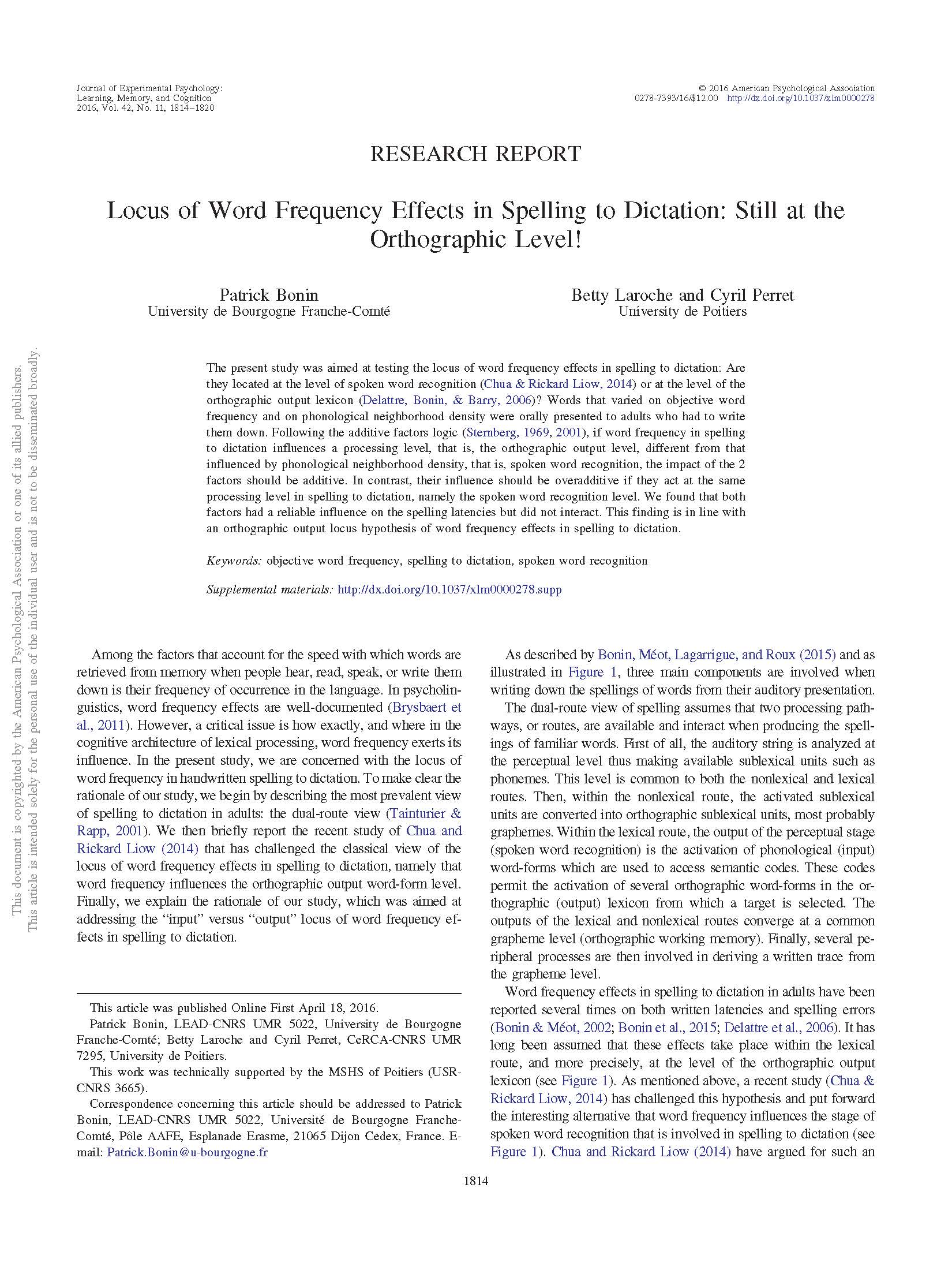The present study was aimed at testing the locus of word frequency effects in spelling to dictation: Are they located at the level of spoken word recognition (Chua & Rickard Liow, 2014) or at the level of the orthographic output lexicon (Delattre, Bonin, & Barry, 2006)? Words that varied on objective word frequency and on phonological neighborhood density were orally presented to adults who had to write them down. Following the additive factors logic (Sternberg, 1969, 2001), if word frequency in spelling to dictation influences a processing level, that is, the orthographic output level, different from that influenced by phonological neighborhood density, that is, spoken word recognition, the impact of the 2 factors should be additive. In contrast, their influence should be overadditive if they act at the same processing level in spelling to dictation, namely the spoken word recognition level. We found that both
factors had a reliable influence on the spelling latencies but did not interact. This finding is in line with an orthographic output locus hypothesis of word frequency effects in spelling to dictation.
Locus of word frequency effects in spelling to dictation: Still at the orthographic level!
